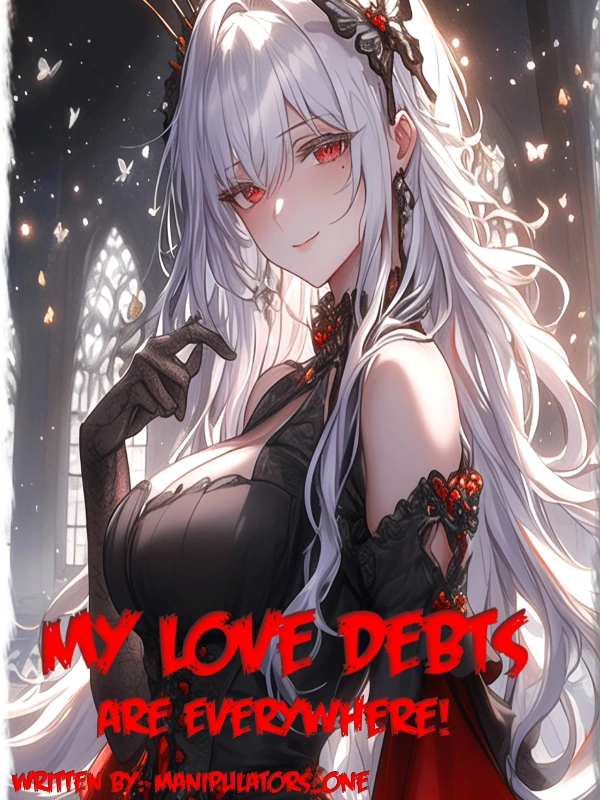Chapter 41: Berlin Race (4)
Translated by Vine | Proofread by Lust
For the latest updates, visit: ProNovels.com
Join our Discord for release updates: https://discord.gg/Eh2ayfR4FB
< German Civil War – Berlin Race (4) >
September 2, 1939
Western Germany, 11th Military District Hanover, SS Training Facility Wewelsburg Castle
Wewelsburg, the Renaissance-style castle purchased by Himmler and used as an SS training facility.
Colonel General Wilhelm Ritter von Leeb, leading the attack on the SS-only facility, issued kill orders without hesitation.
“Kill the traitorous SS bastards!”
“The rebels are framing us! The Führer will never forgive this!”
To the New Government forces, especially the conservative, monarchist generals, the SS were no longer Germans, but simply the enemy.
“Hitler is dead!”
“Nonsense! The Führer lives!”
The New Government forces and the SS, locked in a stalemate, continued their exchange of insults and gunfire.
Gunfire and explosions echoed ceaselessly across the battlefield surrounding Wewelsburg Castle. The once elegant castle was now scarred and monstrous due to the shelling.
“Incoming!”
“Eek! Aagh!”
Witnessing a soldier blown to pieces by a shell landing within clear sight of his command post, SS-Gruppenführer Paul Hausser spoke nervously into the receiver.
“We can’t hold out like this. This is a training facility, not a military base. We’re critically short on equipment, and our greenhorn trainees are being slaughtered!”
[We cannot send Wehrmacht reinforcements as there are enemy forces advancing on Berlin! However, Field Marshal Göring has promised to resupply you by air, so hold on a little longer.]
“Resupply by air?”
Paul Hausser asked dubiously, but Chief of the General Staff Halder’s reply was firm.
[That’s right. Field Marshal Göring assured us there would be no problems, so hold your position without worry.]
Although Paul Hausser had been a promising officer in the Wehrmacht and was regarded almost as a father figure in the SS, the Wehrmacht did not look kindly upon generals who had retired and joined the SS.
“Understood.”
Hausser put down the receiver, sighed, and looked at the young SS troops who were looking at him expectantly.
“Just hold on a little longer. They said they’ll resupply us by air.”
A flicker of hope appeared on the faces of the troops, but Hausser couldn’t smooth the frown on his face as he looked up at the sky.
He wasn’t an expert on air power, but was it even possible to accurately airdrop supplies to them, besieged in a cramped castle and its surrounding training grounds, with no airfield nearby?
Hausser could only hope that the Field Marshal’s confident words would prove true.
He had been deeply disturbed by the radio broadcasts about the SS’s attempt to start a war. But not everyone who joined the SS was a fanatic for Hitler and the Nazis, hating Jews and “inferior races” and craving war.
While it aligned with the Nazis’ intentions, there were also many who joined simply because they thought the uniforms looked cool or masculine.
“I have to save at least the ones I trained. What choice do I have?”
Hausser felt bitter about the reality that the young men who had joined out of admiration for Hitler’s charisma or simply because they thought it was cool were now dying, bearing the sins of the leadership.
–
September 2, 1939
Eastern Germany, 8th Military District Breslau, Army Group South Headquarters
[Commander, the SS Adolf Hitler Panzer Regiment from the 13th Corps has abandoned its position! They are heading towards Berlin!]
“Is General Weichs unable to control his own regiment?”
Colonel General Gerd von Rundstedt, commander of Army Group South, clutched his head. He had intended to ignore the orders from Berlin to suppress the rebels, dismissing it as an SS matter.
However, the 10th Army under Walther von Reichenau, a known pro-Nazi, had rushed to Berlin as soon as the orders were received. Other SS regiments deployed within other armies were abandoning their positions without authorization, causing unrest throughout his command.
The SS Adolf Hitler Panzer Regiment from Blaskowitz’s 8th Army and the SS Germania Motorized Infantry Regiment from List’s 14th Army had deserted, disrupting their respective units.
“General, how about moving west for now?”
“Are you suggesting we fight them?”
Rundstedt’s face darkened at the suggestion from his Chief of Staff, Manstein.
Enjoying the translation? Stay updated with the latest chapters at ProNovels.com.
Even without Beck bringing up the Blomberg-Fritsch Affair, he felt indebted to Beck and the dismissed generals. He had no desire to shed blood fighting against them, who had once been part of the Wehrmacht.
This was the most significant difference between the Black Orchestra’s attempted assassination of Hitler in the original history and the New Government coup currently taking place.
Stauffenberg and the conspirators had attempted to assassinate Hitler during the war, throwing Germany into chaos. The Wehrmacht had viewed the coup, which occurred while they were shedding blood on the front lines, as an act of treason committed to save their own skins.
However, the current coup was launched under the premise of preventing the German army from shedding blood, and a significant portion of the Wehrmacht was not actively hostile to the New Government.
“Of course not, General. But if we ignore orders from above, we could be branded as traitors. Let’s just move slowly for now. Simply waiting could further weaken our control over the units.”
“Hmm, I see. Alright. Then we’ll move the 8th Army to Dresden and the 14th Army to Bohemia-Moravia.”
“A wise decision, General.”
Manstein replied to Rundstedt, but his thoughts were complex. As long as he remained the Chief of Staff of Army Group South, he wouldn’t be immediately accused of treason.
However, he didn’t know how long the New Government officials would keep quiet about him, so the timing of his decision was crucial.
Moving Army Group South westward appeared to be a move to check the New Government forces, but it would also make it easier to join them if they seemed to be gaining the upper hand.
The fact that he was still partially aligned with the Nazis would be a demerit, but if he succeeded in bringing Army Group South over to the New Government at the right moment, the merit would be substantial, so there was no need to worry.
The New Government was currently enjoying the advantage of surprise, according to his plan. But if they seemed to be losing, he could suppress them and use that achievement to mitigate any suspicions against him.
Even as he thought this, Manstein hoped for the New Government’s success, for the sake of his Chief of Staff position.
–
September 3, 1939
Northern Germany, Berlin
Two days after the attack on the Reich Chancellery, the German capital, Berlin, was still in turmoil.
The citizens of Berlin already knew the justification behind the coup launched by the New Government, whom the Nazis were denouncing as rebels.
Police officers patrolled the streets, trying to maintain order, but a massive number of Frankfurter Zeitung newspapers, distributed while Berlin was in chaos after Hitler’s attack, had already been read by many citizens.
What Captain Dietrich Schacht and the Frankfurter Zeitung journalists had prepared was simple yet powerful.
Even if the first day’s exposé was successful, it would be difficult to freely distribute newspapers in Nazi-controlled territory after the outbreak of civil war.
Therefore, the distributed newspapers prominently displayed the frequency of the resistance radio station.
The Nazis had banned that frequency, of course, but they couldn’t break into every single house in Germany and smash their radios.
Above all, the radio was the very tool that the Nazis and Goebbels believed to be their weapon. It was impossible for them to anticipate and prepare for a radio-based propaganda campaign by the rebels, especially in Germany.
The New Government was effectively utilizing a tactic that resistance forces in Nazi-occupied territories had struggled to use in the original history, having meticulously prepared it in advance.
“Hey, you there, what are you doing!”
“Tch!”
Meanwhile, some were secretly sneaking around and distributing newspapers. Under normal circumstances, this would have been suicidal in Berlin, especially during a state of emergency with a heavy police presence.
However, with most troops deployed to the Polish border, and with Himmler, who also oversaw the police, having deployed a significant number of personnel to the west to stop the enemy advancing on Berlin, there were many gaps in the city’s security.
There simply weren’t enough troops to surround and blockade the entire city, especially amidst the ongoing chaos.
A police officer, chasing a man distributing newspapers through the back alleys of Berlin, finally lost him and, gasping for breath, picked up a newspaper dropped by the damned rebel.
“Gasp!”
He gasped in shock at what he saw.
Dr. Paul Joseph Goebbels, the Nazi Minister of Propaganda, was waiting at the broadcasting station for his national radio address, scheduled for noon.
The vile traitors had dared to attack Hitler, the savior sent by heaven for the Fatherland, but his messiah had narrowly escaped the crisis and was now stable.
He had yet to regain consciousness, but those rebels who had tried to harm Germany’s messiah would pay dearly.
Goebbels vowed this, rehearsing his prepared speech as he waited for noon.
The exposure of the SS plot was undoubtedly a setback, but he was confident he could turn public opinion against the traitors who had dared to attempt to assassinate the Führer.
“Doctor, it’s five minutes to airtime.”
Goebbels sat down in front of the microphone.
“How dare they try a propaganda war against us, the fools.”
However, his broadcast never began.
“Doctor!”
Goebbels frowned at the SS officer who rudely rushed in just before the live broadcast, but after receiving the newspaper the officer had brought and skimming through a few pages, he stood up abruptly, his face pale.
Goebbels’s national radio address was postponed.
Newspapers were being distributed throughout Germany, filled with articles and photos of hundreds of bodies piled in mass graves, concentration camp prisoners barely clinging to life, and even lampshades made from prisoner’s skin and skulls used as interior decorations by a Nazi camp commandant.
–
September 3, 1939
Central Germany, 9th Military District Kassel, Frankfurt Radio Station
I slowly opened my eyes.
I was tired after staying up almost all night. Thankfully, the sofa was reasonably comfortable.
Wait a minute.
“You’re awake?”
The feeling against my head wasn’t a sofa. Claudia was looking down at me, smiling.
“Huh?”
“Good morning, Dietrich.”
“Good morning, Claudia.”
Claudia burst into laughter as I unconsciously replied.
The Abwehr had initially suggested smuggling her out of the country after the assassination of Ribbentrop, but I had objected.
Enjoying the translation? Stay updated with the latest chapters at ProNovels.com.
Not only did I not want to send her to a foreign country alone, but I also knew that many anti-Nazi activists were caught not within the country but during the process of leaving.
So I had emptied my military salary account, received support from my father, bought a mansion in Frankfurt, and hid her there.
It was hard to imagine that someone on the wanted list would be staying in a respectable mansion in a major city.
And that choice seemed to be the right one. She was safe, and we could be together now that things had started.
As I naturally smiled, Claudia chuckled and helped me sit up.
“Come on, wake up. People are watching, and it’s actually past noon, not morning.”
Laughter erupted from around us at her words. Oh no! I had been sleeping with my head in her lap in front of everyone?!
My ears must be bright red. I couldn’t lift my face.
“Ugh, I apologize. I must have dozed off because I was tired.”
Editor-in-Chief Theodor Heuss, who had moved to Frankfurt, was looking at me as if I were a thief.
I understood why, but I hadn’t instigated anything, Editor-in-Chief. It was a misunderstanding. He sighed as he looked at my embarrassed face and then spoke.
“You must have been busy, so it’s understandable, Captain Schacht. Goebbels’s speech has been cancelled, and we’re ready here.”
I was greatly relieved by Editor-in-Chief Heuss’s words.
Almost all the staff from the Frankfurter Zeitung Berlin branch had joined us in Frankfurt, but a few dedicated employees had remained in Nazi territory.
They were continuing to distribute the newspapers we secretly supplied, and their risky efforts were undoubtedly proving effective.
“Thank you for your hard work. The Nazis are definitely in disarray thanks to Count Blumenthal’s efforts, so we have to press our advantage.”
Count Blumenthal’s raiding party, despite being busy escaping after the attack, had reported the successful assassination of Hitler. However, Nazi broadcasts were claiming that Hitler was alive and well, presumably to prevent further chaos.
The leadership, noting that Hitler himself hadn’t appeared in any broadcasts, concluded that he was either dead or at least in critical condition.
The leadership, which had been worried about the low success rate of Count Blumenthal’s attack on the Chancellery, couldn’t hide their joy, even though the Count’s own fate was unknown.
Furthermore, General Oswald Lutz was rapidly advancing towards Berlin, swiftly crushing what little resistance he encountered, and Generals von Witzleben and von Hammerstein were taking over Bavaria without much resistance.
As a result, my attempts to persuade and compromise with the New Government leadership had been swept away in the euphoria of what seemed like an imminent victory in the civil war.
“We’ll begin the live broadcast in one hour.”
At the radio station employee’s words, I looked back at the Buchenwald prisoners who were in relatively good condition and had volunteered to speak.
“Well then, let’s begin.”
I couldn’t expect the hard-headed, far-right, monarchist, conservative figures, especially the democracy-hating Dr. Goerdeler, to easily agree. So, as originally planned, I would have to go by the book.
To make them seriously consider what we had to say, we needed to show our value.
Ultimately, it was our role, not the military’s or the Kaiser’s, to turn public opinion.
“Let’s show those Nazis that they’re not the only ones who can play the media game.”
< German Civil War – Berlin Race (4) > End
ⓒ Carcassonne
=======================================
For the latest updates, visit ProNovels.com. Join our Discord for release updates: https://discord.gg/Eh2ayfR4FB.




















